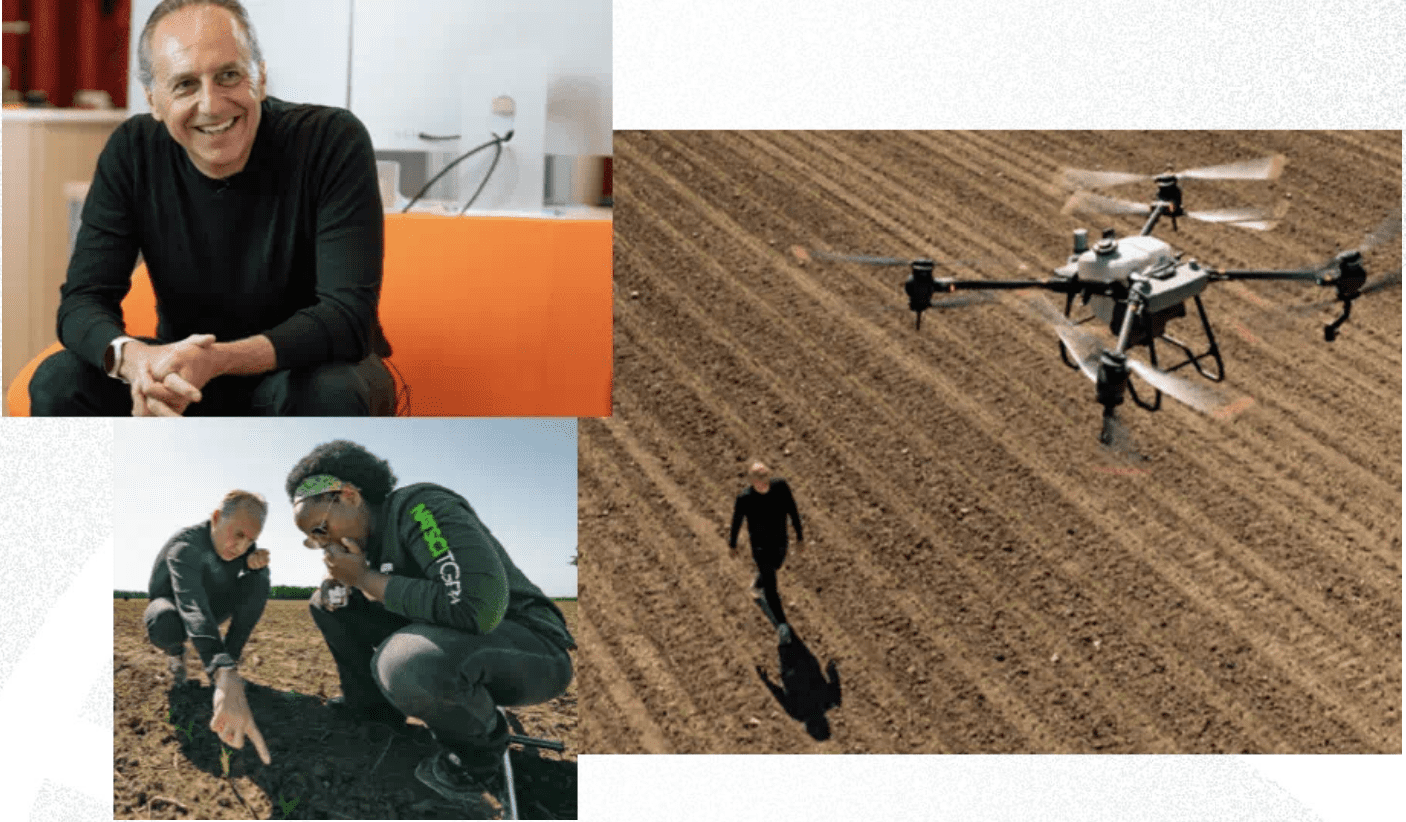On a cloudless day at a farm in Portland, Michigan, Bruno Basso inspects rows of small, leafy green plants that will eventually grow into towering cornstalks. He turns and tells Jeff Sandborn, who runs the farm, that the soon-to-be crops look great.
Over the past decade, Basso and his research team at Michigan State University have worked with Sandborn to help make farming decisions that will lead to better outcomes for crops.
Basso, a John A. Hannah Distinguished Professor and MSU Research Foundation Professor in the colleges of Natural Science and Agriculture and Natural Resources, travels the world searching for solutions and insights that advance sustainable agriculture. Some of his best opportunities for research, however, occur in Michigan at locations like Sandborn Farms.
“Michigan is the state with the second most diverse agriculture after California,” Basso says, listing off crops like corn, soybeans, potatoes, cherries, apples and more. “Working in Michigan and the experiments on sites, it really helps become a window for neighboring farms throughout the state and beyond.”
Basso wants to feed the world while also protecting the environment, and he’s in the right place. MSU is known for attracting scientists like Basso who collaborate to develop innovative solutions in crop science, sustainable agriculture and food security, and the university ranks among the top 20 globally for agriculture.
Using technology like drones and satellites to measure crop health and combining data from the soil and climate, Basso and his team can better advise farmers based on the information they glean.
At Sandborn’s farm in Portland, thanks to what Basso calls precision conservation, MSU researchers recommended turning a low-yield area of the farm into a pollinator habitat with native plants. Sandborn, an MSU graduate, heeded the advice, which allowed him to focus more on areas that provided high crop yields. In turn, his farm became more efficient. Additionally, the pollinator habitat required less water, fertilizer and other resources, making the farm more environmentally friendly.
“The drone, of course, is kind of a cool part,” Sandborn says, “but it’s more what you learn from the information. We’ve been able to put our resources where we get a better return because of it.”
Basso is providing solutions for better returns around the globe. His lab is home to researchers from six continents, and they work across a variety of disciplines. The approach of the lab is to integrate diverse disciplines such as biophysics, climatology, hydrology, genetics, agronomy, and soil science to understand the overall agricultural systems and to improve decision-making across a broad spectrum of stakeholders, from the smallholder farmer in the developing world to the industrial producer and policy maker at all scales.”
Sarah Munezero is one of the many graduate students working in Basso’s lab. Munezero, who grew up in Rwanda, specializes in water and food security. Her work assesses the impact of microbial fertilizers on corn yield and the environment. “Working with Bruno and advancing my technical skills is transformative,” she says. “Because I’m learning what works here, I have the skills to look for solutions in other parts of the world.”
For Basso, having a global impact is the point, and MSU is the perfect place to accomplish that goal.
“Beyond the concept of a university as an educational place,” Basso says, “it’s really a universe. It’s basically a bunch of stars working together to make a change in Michigan and beyond.”
This story was originally published on MSUToday.
About the MSU Innovation Center:
The MSU Innovation Center is dedicated to fostering innovation, research commercialization, and entrepreneurial activities from the research and discovery happening across our campus every day. We act as the primary interface for researchers aiming to see their research applied to solving real-world problems and making the world a better place to live. We aim to empower faculty, researchers, and students within our community of scholars by providing them with the knowledge, skills, and opportunities to bring their discoveries to the forefront. Through strategic collaborations with the private sector, we aim to amplify the impact of faculty research and drive economic growth while positively impacting society. We foster mutually beneficial, long-term relationships with the private sector through corporate-sponsored research collaborations, technology licensing discussions, and support for faculty entrepreneurs to support the establishment of startup companies.
Is your company interested in working with MSU’s vast team of sustainable agriculture researchers? Click Here.

